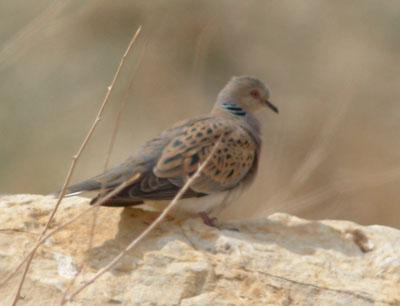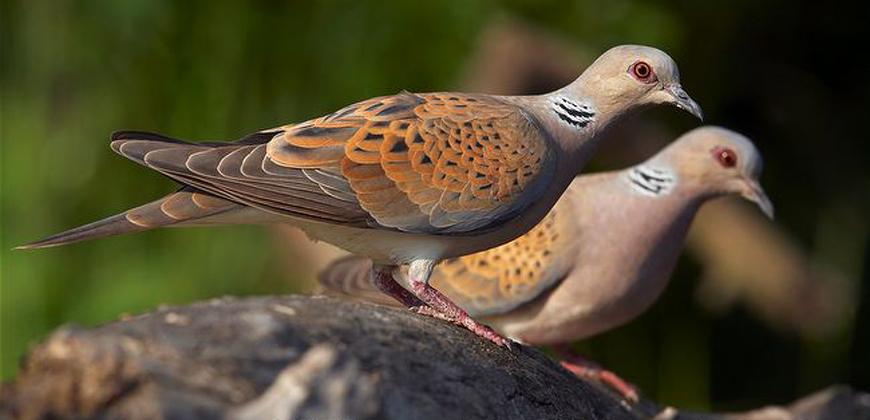You are here
Dove hunting season starts in mid-June
By Hana Namrouqa - Jun 04,2014 - Last updated at Jun 04,2014

AMMAN — The hunting season for three kinds of doves starts in mid-June, the Royal Society for the Conservation of Nature (RSCN) announced on Wednesday.
The hunting of turtle, rock and collared doves will be open to hunters from June 15 until September 15, according to Abdul Razzaq Hmoud, acting director of RSCN’s conservation and hunting regulation section.
“Based on the wildlife committee’s recommendation, the hunting of the three dove species is only allowed in the Jordan Valley. Every hunter is allowed to hunt 15 birds of each kind, which means that each can only hunt 45 doves,” Hmoud said.
In addition, hunting is only permissible on Sundays and Fridays.
“Restricting hunting activities to the Jordan Valley is linked to the end of the three birds’ mating and nesting season in that area,” he added, noting that the end of the mating and nesting season is related to temperatures and available food.
According to Hmoud, the hunting season for the three kinds of doves in mountainous areas will open later, once the mating and nesting season ends.
Turtle doves are migratory birds that cross the country and nest, while rock and collared doves are habitants of Jordan, and are found around the year, he explained.
The RSCN urged hunters to abide by its regulations to sustain hunting activities in the country and preserve wild birds and animals.
Under RSCN regulations, those who hunt outside the allotted period are fined JD100 and sentenced to one week in prison, while those who kill endangered species, such as falcons, are fined JD2,000 and handed four-month prison terms.
In addition, violators’ weapons are seized, according to the RSCN.
The location of hunting activities changes according to the season, with hunters mainly active in the Jordan Valley, mountainous areas and the eastern desert, according to the society.
In 1973, the government gave the RSCN, an independent nonprofit NGO, a mandate to regulate hunting and protect the Kingdom’s wildlife.
Around 4,000 out of an estimated 7,000 hunters in the Kingdom are registered with the RSCN.
“The RSCN issued licences to 1,000 hunters this year. So far, RSCN inspection teams and the Rangers have carried out 700 inspection tours, during which several animals and birds were seized and confiscated,” Hmoud told The Jordan Times.
A total of 22 falcons and 35 wild birds such as doves and partridges were seized and confiscated, in addition to scores of wild rabbits, hyenas and deer in different parts of the Kingdom.
“The inspectors also seized and confiscated 350 tortoises from a person who intended to trade the wild creatures. The tortoises were released back into their natural habitat,” Hmoud highlighted.
Related Articles
AMMAN — With the start of the hunting season for doves, the Royal Society for the Conservation of Nature (RSCN) has urged hunters not to hun
AMMAN — The International Union for the Conservation of Nature (IUCN) has uplisted the turtle dove, a migratory bird widely sought after by
AMMAN — The Ministry of Agriculture has banned hunting of chukar and sand partridges, two bird species that are highly prized by hunters, an













